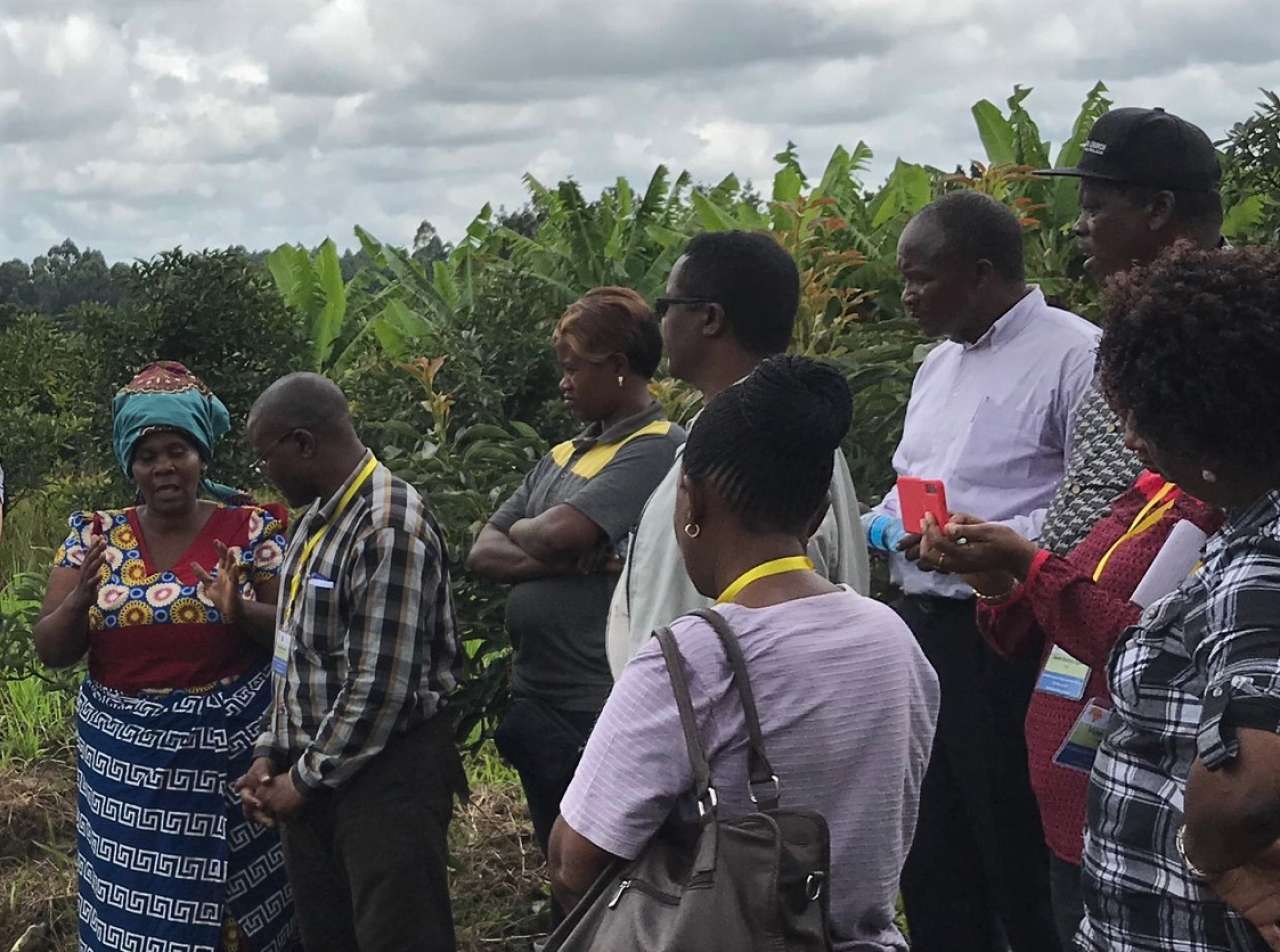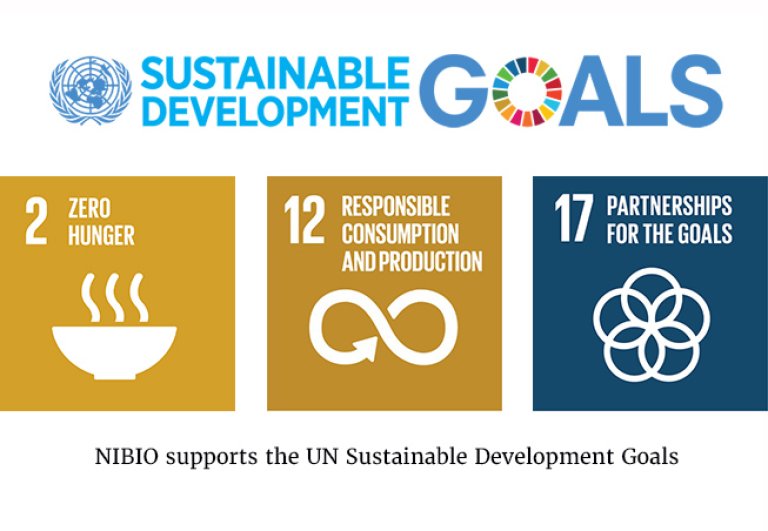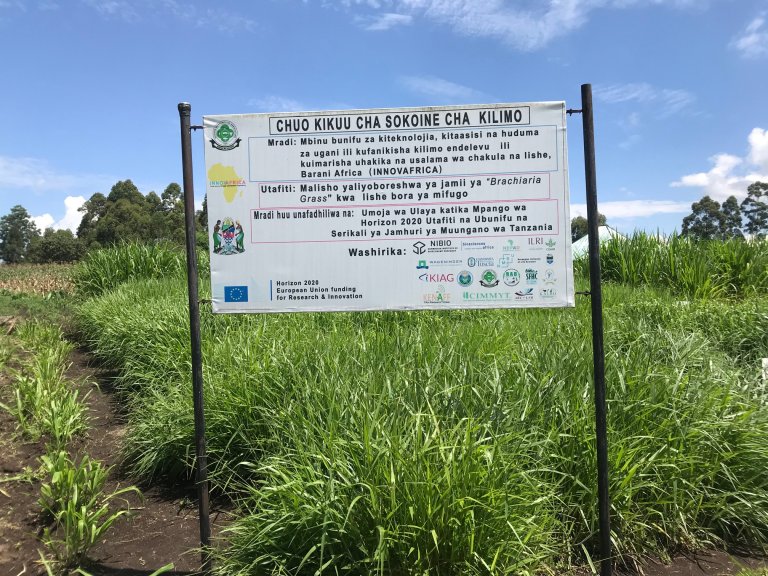Contributing to food and nutrition security in Sub-Saharan Africa

Consortium members on a field visit in Mbeya. Photo: Udaya Sekhar Nagothu.
By actively involving stakeholders and integrating relevant agri-food systems with institutional and extension services, the InnovAfrica project is well on its way towards improving food and nutrition security in six African countries.
African smallholder farm yields are among the lowest in the world, due to serious constraints that include socio-economic and environmental aspects such as climate change, extreme weather events and land degradation. Limited access to good quality seeds, fertilizers, water and mechanization, as well as lack of information and access to markets, restrict smallholders in taking advantage of the numerous value addition opportunities in the agriculture sector.
This is something the InnovAfrica project is addressing. Innovative sustainable agriculture technologies are being introduced in six Sub-Saharan African countries, in close collaboration with smallholders and value chain actors at the local level and stakeholders at the national and Pan African level.
At the InnovAfrica partner meeting held in Mbeya, Tanzania on the 11-15th of February, Project Coordinator Dr. Sekhar Nagothu from NIBIO put emphasis on the innovational potential of InnovAfrica, wherein integrating relevant agri-food systems with institutional and extension services brings about the desired impacts.
“InnovAfrica builds well on past experiences in collaborative projects between EU and African agencies. Our focus is and should be along the entire value chain with an active involvement of stakeholders,” he said.
“By integrating sustainable agriculture intensification systems, innovative institutional approaches with novel extension and advisory services, and by enhancing capacity building and knowledge sharing in smallholder farming in Sub-Saharan Africa, we should succeed in improving food and nutrition security,” he added.
Good scientific progress
InnovAfrica is well on its way towards achieving its goals. From June 2017 to November 2018, the project team focused on developing base line scenarios and actively engage stakeholders through Multi-Actor Platforms (MAPs) in all six case countries. Farmer led field demonstrations of selected sustainable agriculture intensification technologies were conducted, which include maize-and millets-legume cropping systems and Brachiaria forage systems.
In addition, the project took institutional approaches, e.g. towards seed delivery systems, and introduced three selected innovative extension and advisory services; Village Knowledge Centres, Integrated Farm Plan, and Farmer to Farmer.
Furthermore, maps for three agri-food value chains were developed with the help of the multi-actor platforms. Policy and institutional analyses were also carried out to identify adoption barriers and opportunities for upscaling SAI systems at a smallholder level.
Positive feedback
At the Mid-term project review meeting held in Brussels on the 21st February, the EC review committee congratulated the team for the progress made so far and commented that “the project has so far been systematically implemented, thorough and well done”.
Also speaking at the meeting, Mr. Joseph Nyomboha one of the Tanzania MAP members, acknowledged InnovAfrica for the results achieved so far in the project.
“InnovAfrica is a very useful project for increasing awareness and capacity of the dairy farmers in the project villages in Mbeya,” he said.
“Market and price issues are a challenge for farmers in this region, and something I hope InnovAfrica will address further,” he added.
InnovAfrica stakeholder board members, Mr. Yemi Akinbamijo, FARA, Ghana, Mr. Denis Kyetere, AATF, Kenya and Mrs. Agnes Mwang’ombe, University of Nairobi, Kenya also appreciated the good work done so far in the project. They suggested that future reporting in the project should put emphasis on the impacts achieved and overall progress. They subsequently asked that the project links and refers to other strategies relevant for Africa, for e.g. the Malibu declaration, the country policies etc.
“InnovAfrica should directly focus and address the food security issues within the case countries in particular and sub-Saharan Africa in general,” they said.

KONTAKTPERSON


Innovafrica
The EU-funded research project InnovAfrica aims to improve food and nutrition security by integrating sustainable agricultural intensification systems and innovative institutional approaches to increase income and enhance smallholder adaptive capacity in Sub-Sahara Africa. The project work is carried out in six case study countries; Ethiopia, Kenya, Malawi, Rwanda, Tanzania and South Africa.
The fourth InnovAfrica partner meeting took place in Mbeya, Tanzania mid-February 2019 and was jointly hosted by the Sokoine University of Agriculture (SUA), NIBIO, the main project coordinator and ILRI, co-coordinator of the project. Approximately 45 participants representing several organizations from Africa and Europe took part in the meeting. A field visit was organized on February 13th to the project villages in Mbeya.
Read more: www.innovafrica.eu

KONTAKTPERSON

Tekst frå www.nibio.no kan brukast med tilvising til opphavskjelda. Bilete på www.nibio.no kan ikkje brukast utan samtykke frå kommunikasjonseininga. NIBIO har ikkje ansvar for innhald på eksterne nettstader som det er lenka til.
